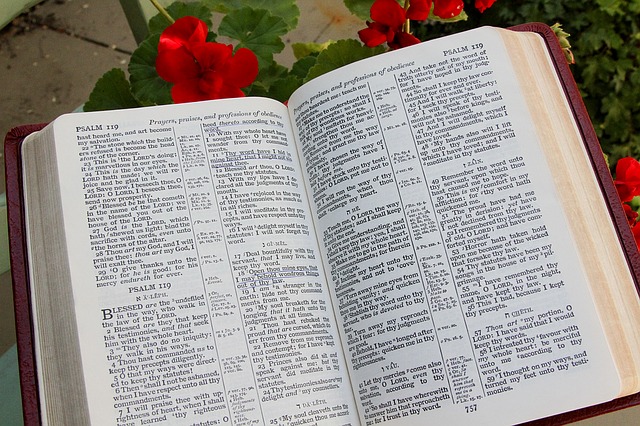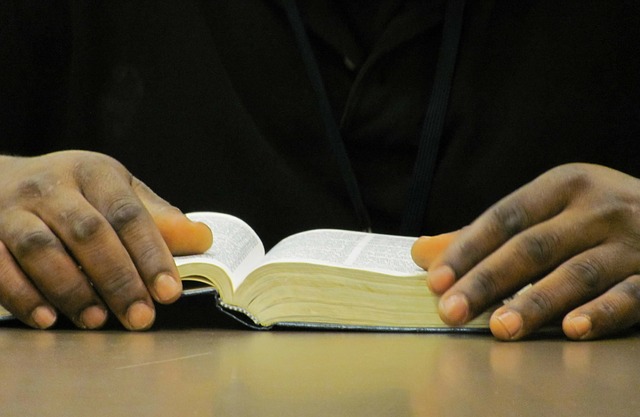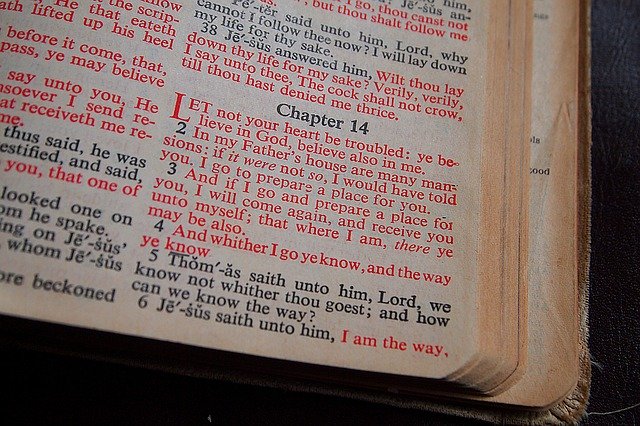
Sunday School Preview Oct 18 2020

Greetings everyone and thanks for joining me for this edition of our Sunday School preview. This Sunday’s lesson is entitled “Loving Your Neighbor” and is found in Luke 10:25-37.
A few weeks ago I preached a sermon entitled “Learning the Eternal Lesson”. If you haven’t heard it or forgotten it, you can click the title to listen to it. But the eternal lesson is about having mercy. “Blessed are the merciful for they shall obtain or receive mercy”.
Mercy is that which alleviates suffering. Jesus has much to say on the subject of mercy. Mercy is a key to eternal life as seen through a well-known parable of Jesus about a good Samaritan. The parable arose after a question from a scholar of the Jewish law was directed to Jesus. The question was “What must he do to receive or inherit eternal life?”.
This next point is very important for all who would be Christians and inherit eternal life. Jesus acknowledged that there is something to be done to inherit eternal life. There are some who say they want eternal life but aren’t doing what needs to be done.
Jesus asked the scholar lawyer “what does the Law say about it and how do you understand what it means?”. The lawyer’s answer was love God with our all and our neighbor as ourself. Jesus said he was correct and if we do this, we shall live. So then there is something we can and must do.
Then the lawyer wanted to know who qualifies as his neighbor. And in order to answer this question, Jesus tells the famous parable about the good Samaritan. There are two points that Jesus makes in the parable that I want to mention.
The first point I want to mention is that Jesus didn’t identify the injured man in any way other than to say he was hurt and left for dead. That means he could be anybody, even you or me. The second point is seeing others as ourself. If you were suffering and someone came along who was able to alleviate your suffering, wouldn’t you want them to do it? This is where mercy comes in.
When we put the two points together, we see that God wants us to alleviate human suffering regardless of who the person is. Not only those who look like us, think like us, live like us and in any matter we may find or have something in common.
As far as the parable goes, the injured man and the Samaritan had nothing in common except their humanity and that they were travelling on the same road. Oh, how far America, and the world, is from being neighborly to each other as Jesus taught.
People are divided by so many superficial things and self-absorbed that they refuse to behave merciful toward others based on nothing more than our common humanity. Because of our lack of mercy and failure to treat others the way we would want to be treated, we are confronted with most of the social problems in our society.
The lack of love and mercy can destroy a society and accounts for much suffering as everyone looks inward at their own needs and not at the needs of others. There is enough to go around so that no one is in need of anything.
But without the love and mercy of God, we selfishly turn our back on others and only concern ourselves with our own needs and those we have something in common with. People don’t believe much in eternity anymore if some ever did. But for those who still do and will, Jesus leaves us with an important lesson.
The parable arose from what began as a question about eternity. It ended with showing us to see ourselves in others on the basis of their humanity alone and to help them if and when we can. By doing so, we are helping others as we help ourselves and doing what is required to inherit eternal life.
Well, I hope you will be able to attend SS this coming Sunday. Invite someone to come and share your thoughts with the class. Sunday School at Flag Branch will begin at 9:00 am and you are invited to join us at www.fbmbc.org and clicking the online services link. I look forward to giving the lesson highlights and addressing questions that arose during the lesson. If you have any comments or questions before then, be sure to place them in the comment section of this preview and I will get back to you. So, as always remember to fear God and keep His commandments.
Pastor Jordan

Sunday School Preview Oct 11 2020


Sunday School Preview Oct 4 2020

Greetings everyone and thanks for joining me for this edition of our Sunday School preview. This Sunday’s lesson is entitled “Love and Devotion to Others” and is found in 1 Samuel 19:1-7.
Sometimes in our lives we develop a friendship with someone that can be characterized as one “closer than a brother” or any other member in our family. That was the case when Jonathan and David developed such a friendship.
These types of friendships don’t often last because they encounter circumstances such as time, distance, marriage, separation, new relationships, outside interference, misunderstandings, sickness and death that get in the way. David and Jonathan encountered some of these things, yet their friendship remained strong until they were permanently separated by death.
Jonathan and David became friends as a result of Saul, king of Israel, inviting David to remain with him and in his service after he killed the giant Goliath. Jonathan was Saul’s son who immediately befriended David and the two developed a deep and abiding friendship. They made a covenant between them and as a pledge of that covenant, Jonathan gave David some very personal and meaningful items.
As David began to prosper as a warrior, the people of the kingdom took notice and began to praise him for his many accomplishments on the battlefield. While this was good for Saul and the kingdom, Saul became very afraid, jealous and envious of David and the fame and notoriety David was receiving.
As a result, Saul decided he wanted to have David killed on the battlefield. But all of his plots failed including one that resulted with his daughter being married to David. When Saul saw that his attempts to have David killed on the battlefield failed, he decided to use a more direct approach.
He ordered his family and officers to kill David. When Jonathan learned what his father had commanded that David be killed, Jonathan warned David of his father’s plan. He told David to hide until he had an opportunity to convince his father to change his mind. This is where the love and devotion to others is clearly elevated and seen.
During that encounter Saul swore an oath that he would not harm David. Jonathan was successful in turning his father from his plan to kill David. David was able to continue to serve Saul as before because Jonathan had intervened on his behalf. The sad part however is that Saul’s fear, jealousy and envy overcame his vow to Jonathan concerning David and he again sought to kill him. But all that is for another lesson.
Meanwhile, David and Jonathan remain the closest of friends despite Saul and everything else that came between them. This is why their friendship serves as a good example of “love and devotion to others”.
Well, I hope you will be able to attend SS this coming Sunday, invite someone to come and share your thoughts with the class. Sunday School at Flag Branch will begin at 9:00 am and you are invited to join us at www.fbmbc.org and clicking our online services link. I am available to answer your questions just before I give the lesson highlights. If you have any comments or questions before then, be sure to place them in the comment section of this preview and I will get back to you. So, as always remember to fear God and keep His commandments.
Pastor Jordan

SS Preview September 27, 2020


SS Preview September 20, 2020


SS Preview September 13, 2020

Greetings everyone and thanks for joining me for this edition of our Sunday School preview. This Sunday’s lesson is entitled “God Rewards Obedience” and is found in Genesis 41:22-33; 37-40; 50-52.
In last week’s lesson, we saw Joseph sold as a slave to those travelling to Egypt. Today, we find that same Joseph receiving authority to become second only to Pharaoh king of Egypt, marrying the daughter of a prominent Egyptian family, being blessed with two sons and receiving an Egyptian name from Pharaoh and becoming a naturalized citizen.
What a turn around! From slave to vice-president of a foreign nation. How did all this happen? This happened because God had a plan for Joseph’s life that would involve the salvation of all mankind and because Joseph remained faithful to what he believed about God.
So many times unpleasant and unexplainable things can happen in life. We can find ourselves in a position or place or situation not of our own choosing and often not of our own making. It is in times like these we can become discouraged and not only question our faith in God, but abandon our faith in God.
Faith in God is more than a belief that God exist or is real as we learned earlier, but it also involves obedience to God. Joseph had several opportunities and reasons to abandon faith in God. He found himself a slave in a strange land. Yet by God’s grace he ended up in a household that allowed his God-given favor to elevate him to a position of trust and honor.
After leaving the pit of slavery to a place of privilege and honor, he found himself once again in the unwanted and undeserving place of prison after remaining faithful to God. After surviving and enduring one devastating event in his life, here he was facing a seemingly even worst one.
Yet he didn’t abandon His faith in God and God’s grace elevated him even in prison. And it was from prison, he was called to stand before Pharaoh. What were the odds that a prisoner would be called before Pharaoh and made vice-president of a nation?
None of this could be foreseen by Joseph or anyone else. Joseph had no idea that God was taking him through all that went on in his life for the moment he found himself before Pharaoh. But at that moment with the telling of Pharaoh’s dream, it all became clear that God had prepared him for that moment.
We can’t see and know why God takes us on the journey he takes each of us on. We don’t know whose life we are called upon to impact nor the path God will take us on in order to impact that life. Joseph’s life ended up impacting the lives of millions of people including our own. The important thing is for us like Joseph never to lose faith in God along the journey.
We must believe God has us right where He wants us to be impacting those around us in the way He sees fit. Though the circumstances may not be pleasant nor of any making or doing of our own, we can be confident that God has His reasons for us being in the places we are in. For not only is God using us for His purpose, but He is preparing us for life in His eternal kingdom at the same time.
Well, I hope you will be able to attend SS this coming Sunday and share your thoughts with your class. If you cannot attend your own Sunday School, you are invited to join us online at 9:00 am live and interactive at our website. If you have any comments or questions, be sure to place them in the comment section of this preview. So, until next time remember to fear God and keep His commandments.
Pastor Jordan

SS Preview September 6, 2020


SS Preview August 30, 2020


SS Preview August 23, 2020

Greetings everyone and thanks for joining me for this edition of our Sunday School preview. This Sunday’s lesson is entitled “Taming The Tongue” and is found in James 3:1-12. James begins this lesson with a strong caution about becoming teachers. He phases it by saying that not many in the congregation should want to or desire to be teachers.
The reason for this caution is that whoever becomes a teacher will be held to a higher standard of accountability and will be judged more strictly. So this should give everyone a reason to pause before accepting any role in which we will be instructing others.
In a boarder sense, all instruction is not limited to a formal teaching assignment or role. Christian Instruction may include any and all methods and ways of informing someone about their behavior or actions. In that sense, we are all accountable for our influence upon others.
James goes on to use the word “we” in his next statement in which he states that “we” stumble in many things. “We” could mean “teachers” or more generally everyone. But rather he meant teachers or everyone, the case is true for both.
We must be careful with the use of the word translated “stumble” or “offend”. In this verse, it is used twice. The word does not mean “sin”. What it means is to “lose one’s balance” or “to trip”. It is another way of saying not everything we do will come out the way we want or intend.
With that said and with teachers in mind (although this applies to everyone), James places the highest premium of not stumbling when it comes to speaking. Therefore, we must think twice or three times before we speak. For whoever is able to not stumble in speech, it also capable of not stumbling with any other part of the body.
James makes the argument that the key to not offending in speech is to control the small part of our body that enables speech. It, like other small part of other things, is small but is capable of so much control. Without exercising the control over such a small part, it will and can cause great harm and damage.
James says man has tamed and brought under control many things, but the tongue is one thing that alludes his control. The tongue itself is full of venom capable of inflicting harm. With it comes forth good and evil which should not be because it does not make sense for good and evil to come from the same source.
This is why James concludes that if we can get control of our tongues which is what we use to speak, the rest of our members will be easily brought into subjection.
Well, I hope you will be able to attend SS this coming Sunday and share your thoughts with your class. If you cannot attend your own Sunday School, you are invited to join us online at 9:00 am live and interactive at our website. If you have any comments or questions, be sure to place them in the comment section of this preview. So, until next time remember to fear God and keep His commandments.
Pastor Jordan

SS Preview August 16, 2020


